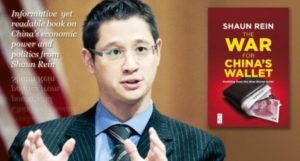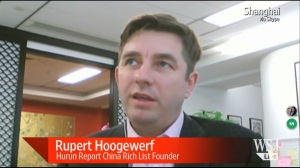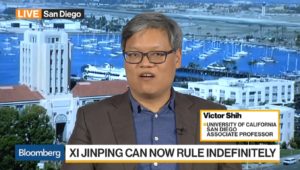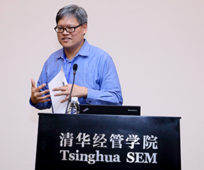 |
| Shaun Rein |
Knowledge CKGSB:
Q. One of the key arguments in your book, The War for China’s Wallet, is that Chinese consumers can be mobilized to reward or punish brands based on a country’s relationship with China. The most striking example recently has been South Korea. How worried should brands be about this trend?
A. Brands need to be very worried. They need to understand the geo-political situation better now than at any time before. Five, ten years ago, you basically had to understand: what did the Chinese consumer want, what types of products or services, what’s the right marketing communications strategy? But now, it’s very clear that China is using its economic wallet and its muscle to reward and punish other countries—and, increasingly, companies—to ensure that they adhere to its political wants.
Q. What practical measures can brands take to protect themselves from this?
A. It’s not easy, frankly. I think there are a couple of things. They can, first and foremost, show from the very beginning that they’re friends of China. In the book, I used the example of Yum! Brands— KFC. They have always shown the everyday Chinese people that they respect the culture, respect the people. And they have done it by creating egg-and-milk food programs for poor schoolchildren throughout the country. That’s really important, because when there was South China Sea tension a year ago, sales in some parts of China for KFC dropped dramatically. But they rebounded after a month or two, because at the end of the day, the consumer realized KFC is a friend of China, and that’s a really important thing.
Secondly, you probably need to join associations. No single company can push back against the Chinese government, so you need to form blocks of 20, 100, 200 companies. Then, if one of them gets attacked, they can unify together and say: ‘Hey, wait a minute. This is not this company’s problem, this might be a government issue, don’t punish us.’
Q. How can brands from countries that generally enjoy a positive image among Chinese consumers take advantage of this without making themselves vulnerable?
A. It’s tough. I think iconic brands that represent a country are dangerous. It’s better to be affiliated, but not too representative. For example, Costa Coffee customers don’t always know it’s British.
Right now, Harrods is doing fabulously well, because for Chinese, when they go [to London], it’s a destination. If you go to the UK, you have to shop at Harrods. The risk though, for Harrods especially, is that if there ever is tension between China and the UK, Harrods will be the first thing to get hit. Costa Coffee won’t be. It’s Toyota, it’s KFC, it’s Starbucks, it’s Apple… It’s good to show you’re from a certain country, but it’s also not good to emphasize it too much.
Q. Is there a chance this approach will become less effective if used too often?
A. That’s a great question. I think Chinese consumers don’t view it as propaganda, but rather as pride in the country. I think it’s a strategy that they can employ over the next 10-20 years, and it’s not going to make a difference. Even when we interview Chinese who were educated abroad and they come back, they still get really worked up.
The bigger risk is: will China go too far and cause too much worry for other governments, to the extent that that they do band together and they push back? Maybe they don’t band together in ASEAN, but maybe they band together in TPP. There are all these new organizations that are popping up. China needs to worry about that, that they don’t oversell their economic power.More at Knowledge CKGSB.
Shaun Rein is a speaker at the China Speakers Bureau. Do you need him at your meeting or conference? Do get in touch or fill in our speakers' request form.
Are you looking for more branding experts at the China Speakers Bureau? Do check out this list.


































